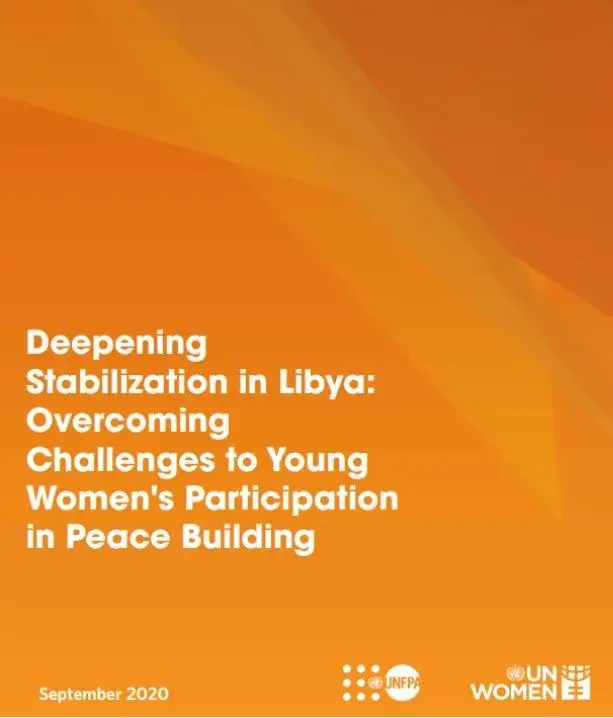As Libya struggles with continued political conflict and economic turmoil amid the COVID-19 pandemic, young women who want to contribute to peacebuilding, political processes, and economic reconstruction face serious obstacles. Their marginalization inhibits prospects for a sustainable peace and reconstruction, as political settlements that fail to include all age and gender demographics tend to perform worse over the medium and long run. 1 This paper summarizes some of the challenges young Libyan women face and offers recommendations for international, national, and local stakeholders. The challenges and recommendations outlined here are drawn directly from a series of conferences held with and by young Libyan women, and were developed through further research and consultation.
What we do
Deepening Stabilization in Libya: Overcoming Challenges to Young Women's Participation in Peace Building

Publisher
UNFPA and UN WOMEN
Number of pages
14
Author
UNFPA and UN WOMEN
Publication
Deepening Stabilization in Libya: Overcoming Challenges to Young Women's Participation in Peace Building
Publication date
01 September 2020

